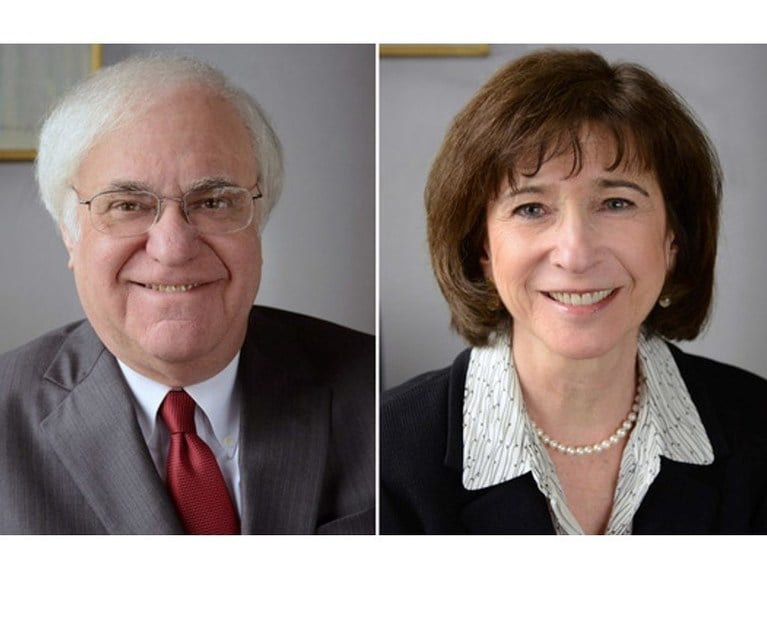An ADR Primer for Non-ADR Professionals
In this article, the author describes traditional ADR mechanisms, namely arbitration and mediation, and the attributes of an effective arbitrator and mediator. She then covers Med-Arb, a lesser-known mechanism, and discusses dispute avoidance measures, which are gradually gaining traction.
May 17, 2022 at 11:00 AM
11 minute read
 As the alternative dispute resolution—or ADR—world grows and becomes more prevalent, many business lawyers, and even some litigators, may find the difference amongst the various ADR processes somewhat unclear. Selectors may also confuse the role a neutral plays in each and waver in determining the best person to choose for their case. I describe below the traditional ADR mechanisms, namely arbitration and mediation, and the attributes of an effective arbitrator and mediator. I then cover Med-Arb, a lesser-known mechanism, and discuss dispute avoidance measures, which are gradually gaining traction.
As the alternative dispute resolution—or ADR—world grows and becomes more prevalent, many business lawyers, and even some litigators, may find the difference amongst the various ADR processes somewhat unclear. Selectors may also confuse the role a neutral plays in each and waver in determining the best person to choose for their case. I describe below the traditional ADR mechanisms, namely arbitration and mediation, and the attributes of an effective arbitrator and mediator. I then cover Med-Arb, a lesser-known mechanism, and discuss dispute avoidance measures, which are gradually gaining traction.
Arbitration
Arbitration is often viewed as a more efficient and less costly alternative to litigation. It is a dispute resolution process that is generally supported and enforced by the traditional courts. Basically, it involves the parties selecting their adjudicator and agreeing to the procedural rules they will follow. The concept of party autonomy is at the heart of the arbitration process. For disputes involving highly technical matters, selecting the decision maker based on their qualification as opposed to a court-imposed judge can be particularly appealing. For smaller disputes and parties seeking a swift process, the ability to bypass extensive discovery and cumbersome processes is another major advantage. For international transactions, arbitration allows parties to avoid having to submit to the courts of a foreign nation that may have national biases. More generally, arbitration centers and arbitrators have shown themselves to be much more easily adaptable to change than courts: The shift to remote in arbitration hearings was rather swift while courts have moved relatively slowly, if at all, creating a significant backlog.
That being said, arbitration can have its drawbacks. Although it's often viewed as a confidential process, it may not always be. For example, if enforcement of an arbitration award is contested in court, the judge's ruling in and of itself may disclose portions of the arbitration proceedings. Also, unless the parties have separately agreed to confidentiality, they are not prevented from making disclosures. Another concern with arbitration is that arbitrators are generally viewed as reluctant to make the tough decisions and more likely to find a "middle of the ground" solution that appeases both parties. Unlike judges, arbitrators are generally selected by the parties and paid by them for their services; they could therefore be less inclined to alienate a party for fear a gossiping party may damage the arbitrator's reputation and future appointments. Further, an arbitration award is generally not appealable: Although a party may contest enforcement of an award under narrow procedural grounds, generally, an arbitration award is final. Finally, the biggest benefit of arbitration, namely a swift and economical process, is not always assured. It requires that both parties agree to it. Although arbitrators generally try to encourage the parties to act expeditiously and avoid unnecessary discovery and lengthy processes, ultimately their hands will be tied by the terms the parties agree, or don't agree. Since often one party has an interest in drawing proceedings out, the arbitrator's ability to streamline the process may be limited absent an arbitration agreement that imposes specific limitations on the parties. It's also worth noting that the general finality of arbitral awards can, in and of itself, extend the process: Arbitrators may be overly cautious to ensure not only that the right result is achieved but also that the procedure followed does not transgress any of the limited grounds for vacatur.
This content has been archived. It is available through our partners, LexisNexis® and Bloomberg Law.
To view this content, please continue to their sites.
Not a Lexis Subscriber?
Subscribe Now
Not a Bloomberg Law Subscriber?
Subscribe Now
NOT FOR REPRINT
© 2025 ALM Global, LLC, All Rights Reserved. Request academic re-use from www.copyright.com. All other uses, submit a request to [email protected]. For more information visit Asset & Logo Licensing.
You Might Like
View All
Five Years After Vega Much Remains Unsettled in Pay Frequency Litigation

Distressed M&A: Safe Harbor Protection Extends to Overarching Transfer


Trending Stories
- 1In Novel Oil and Gas Feud, 5th Circuit Gives Choice of Arbitration Venue
- 2Jury Seated in Glynn County Trial of Ex-Prosecutor Accused of Shielding Ahmaud Arbery's Killers
- 3Ex-Archegos CFO Gets 8-Year Prison Sentence for Fraud Scheme
- 4Judges Split Over Whether Indigent Prisoners Bringing Suit Must Each Pay Filing Fee
- 5Law Firms Report Wide Growth, Successful Billing Rate Increases and Less Merger Interest
Who Got The Work
J. Brugh Lower of Gibbons has entered an appearance for industrial equipment supplier Devco Corporation in a pending trademark infringement lawsuit. The suit, accusing the defendant of selling knock-off Graco products, was filed Dec. 18 in New Jersey District Court by Rivkin Radler on behalf of Graco Inc. and Graco Minnesota. The case, assigned to U.S. District Judge Zahid N. Quraishi, is 3:24-cv-11294, Graco Inc. et al v. Devco Corporation.
Who Got The Work
Rebecca Maller-Stein and Kent A. Yalowitz of Arnold & Porter Kaye Scholer have entered their appearances for Hanaco Venture Capital and its executives, Lior Prosor and David Frankel, in a pending securities lawsuit. The action, filed on Dec. 24 in New York Southern District Court by Zell, Aron & Co. on behalf of Goldeneye Advisors, accuses the defendants of negligently and fraudulently managing the plaintiff's $1 million investment. The case, assigned to U.S. District Judge Vernon S. Broderick, is 1:24-cv-09918, Goldeneye Advisors, LLC v. Hanaco Venture Capital, Ltd. et al.
Who Got The Work
Attorneys from A&O Shearman has stepped in as defense counsel for Toronto-Dominion Bank and other defendants in a pending securities class action. The suit, filed Dec. 11 in New York Southern District Court by Bleichmar Fonti & Auld, accuses the defendants of concealing the bank's 'pervasive' deficiencies in regards to its compliance with the Bank Secrecy Act and the quality of its anti-money laundering controls. The case, assigned to U.S. District Judge Arun Subramanian, is 1:24-cv-09445, Gonzalez v. The Toronto-Dominion Bank et al.
Who Got The Work
Crown Castle International, a Pennsylvania company providing shared communications infrastructure, has turned to Luke D. Wolf of Gordon Rees Scully Mansukhani to fend off a pending breach-of-contract lawsuit. The court action, filed Nov. 25 in Michigan Eastern District Court by Hooper Hathaway PC on behalf of The Town Residences LLC, accuses Crown Castle of failing to transfer approximately $30,000 in utility payments from T-Mobile in breach of a roof-top lease and assignment agreement. The case, assigned to U.S. District Judge Susan K. Declercq, is 2:24-cv-13131, The Town Residences LLC v. T-Mobile US, Inc. et al.
Who Got The Work
Wilfred P. Coronato and Daniel M. Schwartz of McCarter & English have stepped in as defense counsel to Electrolux Home Products Inc. in a pending product liability lawsuit. The court action, filed Nov. 26 in New York Eastern District Court by Poulos Lopiccolo PC and Nagel Rice LLP on behalf of David Stern, alleges that the defendant's refrigerators’ drawers and shelving repeatedly break and fall apart within months after purchase. The case, assigned to U.S. District Judge Joan M. Azrack, is 2:24-cv-08204, Stern v. Electrolux Home Products, Inc.
Featured Firms
Law Offices of Gary Martin Hays & Associates, P.C.
(470) 294-1674
Law Offices of Mark E. Salomone
(857) 444-6468
Smith & Hassler
(713) 739-1250






